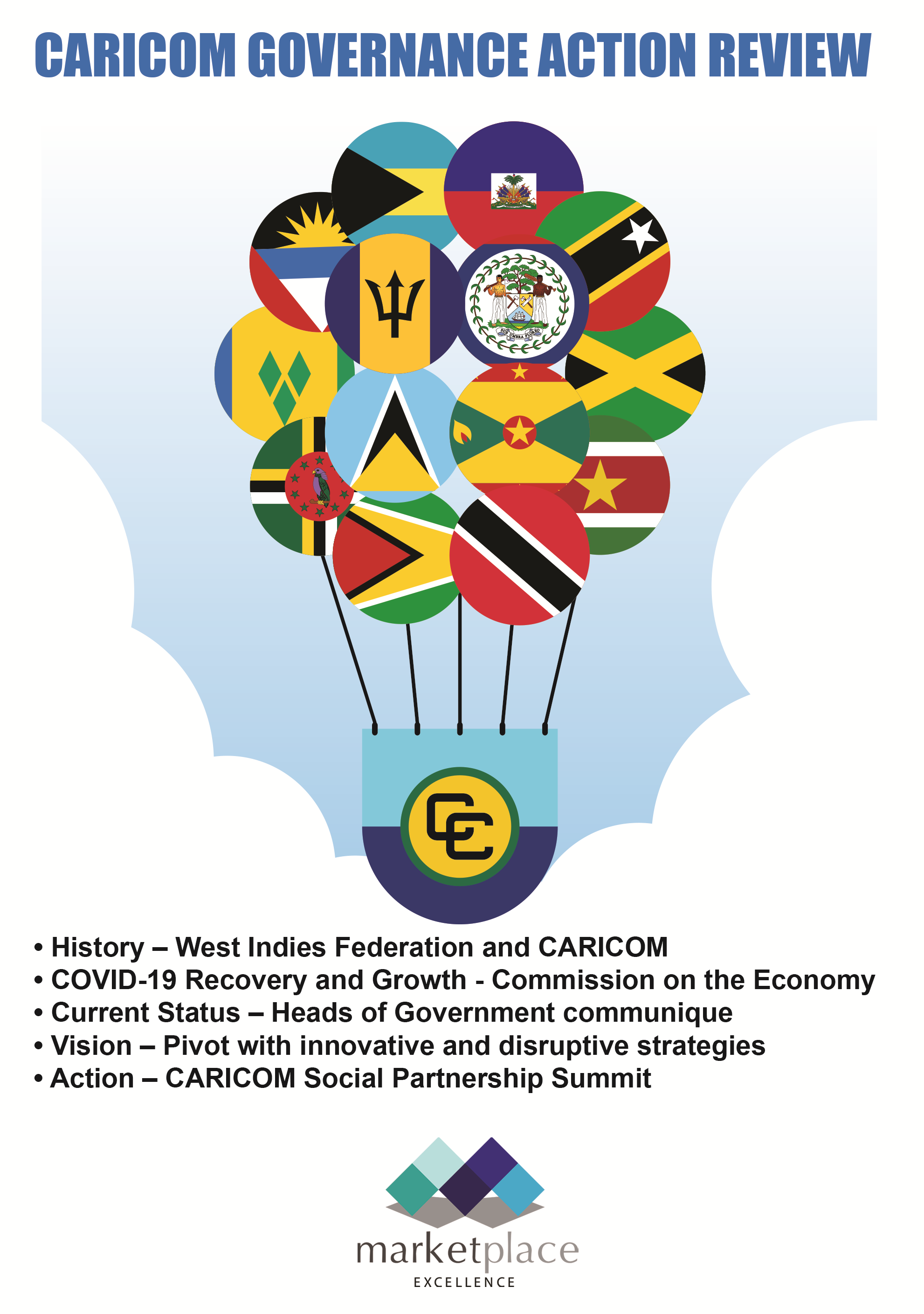“If one member suffers, all suffer together with it; if one member is honored, all rejoice together with it.” – 1 Corinthians 12:26
CARICOM, a commendable resource base of 18 former British colonies, Haiti and Suriname with 18 million people over a collective land mass of 500,000 km2 , has evolved 60 years after the demise of the West Indies Federation.
The principal governance organs of CARICOM are: (1) The Conference of Heads of Government with a rotating biannual chairmanship by a Prime Minister; and (2) a quasi cabinet through which individual heads of government have lead responsibility for specific areas and the Community Council Of Ministers (Ministers of CARICOM affairs in member states).
There are biannual meetings of the Conference, but I am unaware of any attempt to resolve the internal political conflicts among its members, which bedeviled the Federation’s overarching governance structure of a single independent state. It may be argued that such an innovative structure is likely to enhance CARICOM’s rate of economic growth, reduce its high operational cost, increase its overall efficiency, and ultimately achieve socioeconomic balance and sustainability.
The advent of COVID-19 in 2020 resulted in a paradigm shift for CARICOM from a focus on its recovery and growth to an emergency strategy to save lives and restore livelihoods.
We are reminded by futurist Joel Barker that “when a paradigm shifts, everyone goes back to zero – your past success guarantees you nothing”.
CARICOM moved into action to address economic growth before COVID-19 was upon us. Professor Avinash Persaud was appointed Chairman of the CARICOM Commission on the economy. In an October 2020 report to the CARICOM Heads of Government he stated: “At the height of the first wave of the Global Pandemic of COVID-19, the CARICOM Commission on the Economy met virtually to discuss what the Commission would recommend to CARICOM Heads of Government as the best “collective” response to the pandemic, drawing on what was then our draft report for the region’s long-term growth strategy and direction. Our focus was on what could we do now, given all of the constraints of operating in the environment then, that could have an immediate impact on the region, as well as being consistent with where we need to go in the long-run”.
In February 2021, the Conference of Heads of Government accepted the report of the CARICOM Commission on the Economy with a 12-Point Action Plan in Response to the COVID-19 Global Pandemic and decided that the CARICOM Secretariat will work with the Commission to review the recommendations and formulate implementation plans for the consideration of the 42nd Regular Meeting of the Conference in July 2021.
In the last column we proposed a high-level summary prescription delineating some innovative and disruptive governance strategies which may help to improve the eco and socioeconomic health of CARICOM.
The primary stakeholders in the growth of a country are the Government (regulatory and service functions); the private sector (growth of the economy by doing business); the trade unions (inducing employer/employee harmony towards increased productivity for fair compensation); the church and wider faith community (uplifting morality in society); and civil society (service entities mobilizing groups of individuals to support the aforementioned).
The Conference of the Heads of Government may have provision for private sector observers but what is needed at this stage is a CARICOM-initiated regional summit of all stakeholders to chart the way forward.
Unity is strength!

(Dr. Basil Springer GCM is a Change-Engine Consultant. His email address is basilgf@marketplaceexcellence.com. His columns may be found at www.nothingbeatsbusiness.com .
